Someday I’ll Write That Story: Becoming Lost In Research
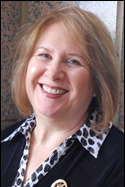 When I first joined Women Writing the West in 2011, the name of Alice Trego seemed to be everywhere. Not only had Alice served as the group’s President, but she had also held positions as Treasurer, Newsletter Editor, Catalog Editor and VP Conference. In addition to giving her time in these demanding posts, Alice had also spearheaded the group’s LAURA awards—their short story competition for members—and had help edit and redesign the WWW website.
When I first joined Women Writing the West in 2011, the name of Alice Trego seemed to be everywhere. Not only had Alice served as the group’s President, but she had also held positions as Treasurer, Newsletter Editor, Catalog Editor and VP Conference. In addition to giving her time in these demanding posts, Alice had also spearheaded the group’s LAURA awards—their short story competition for members—and had help edit and redesign the WWW website.
Alice’s own writing career started in the late 1980s, writing for a column called “Conversations” in Missouri’s Suburban Journal newspapers. By the 1990s, she had expanded her portfolio to include historical non-fiction and fiction, garnering notice in several competitions. Although a journalist by profession, Alice’s main area of interest is early 1800s western history. She now writes Native American and other historical fiction stories, often losing herself in her research. Alice says that unknown facets of history let themselves be known to her, and she has to investigate them further and determine if they will have their own place in her stories.
Currently she is researching a well-known Montana family for a book-length creative non-fiction project. She remains a member of WWW as well as Western Writers of America. I’m delighted to have Alice Trego here as my guest.
+++++++++++++++++++++++++++++++++++++++++++++++++++++++
Someday I’ll Write That Story: Becoming Lost In Research
By Alice Trego
American playwright Wilson Mizner is credited with saying, “Stealing from one is plagiarism, stealing from many is research.”
There have been numerous variations of this quote since Mizner made the remark while working in early 1900s Hollywood. However, versions of his remark in the decades before and after seem to allude to the same premise – research entails a lot of legwork, scrutiny and investigation so that authenticity is key in stories.
As a journalist, I learned early in my writing career that seeking more than two resources is a must. As a writer, I adhere to Mizner’s “philosophy” so that both my historical non-fiction and fiction have depth of history . Consequently, I have a tendency to become lost researching history for my manuscripts. I become so engrossed in finding the nuggets of history that I forget I have to write, too. 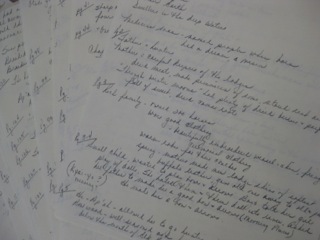 I’ve also discovered that sometimes trickles of information appear before me in the strangest scenarios. For instance, on one occasion I ordered a book from a museum gift store because I knew the material would be exemplary. This hardcover contained beautiful photos of busts and statues by a well-known western bronze sculptor, Bob Scriver. When I opened the book, I turned directly to a picture of a bust of a famous female Indian warrior. A couple of days later, I received a publication from a different museum where I have a membership, and a story featuring the same female warrior caught my eye. The article mentioned a book written about her in the early 1900s and I knew I had to search for that book and read her story. I did some research and the path led me to the Special Collections department of the J. Willard Marriott Library at the University of Utah. Needless to say, this woman has intrigued me for many years since that hardcover showed up in my mailbox. Someday I will write her story.
I’ve also discovered that sometimes trickles of information appear before me in the strangest scenarios. For instance, on one occasion I ordered a book from a museum gift store because I knew the material would be exemplary. This hardcover contained beautiful photos of busts and statues by a well-known western bronze sculptor, Bob Scriver. When I opened the book, I turned directly to a picture of a bust of a famous female Indian warrior. A couple of days later, I received a publication from a different museum where I have a membership, and a story featuring the same female warrior caught my eye. The article mentioned a book written about her in the early 1900s and I knew I had to search for that book and read her story. I did some research and the path led me to the Special Collections department of the J. Willard Marriott Library at the University of Utah. Needless to say, this woman has intrigued me for many years since that hardcover showed up in my mailbox. Someday I will write her story.
Aside from the many freakish ways that tidbits of history come to me, I also have various places I routinely conduct my research –
Internet Search – While it’s said that writers should use caution when researching the internet, I mainly use the world wide web as a preliminary to get an idea of what I should be looking for before I trek to the library or research on site. I’ve recently discovered two great sites that make my beginning research ideal and lead to many other resources – www.entireweb.com and www.heritage-history.com
Libraries- I could spend hours in the library. Most city libraries are known for their wonderful children’s sections, and it’s here that I first look up the subject I want to write about. By reading a children’s book first, I learn the important facets of the topic before I delve deeper. At the university libraries, I always make sure I check out their Special Collections area because here is where the small nuggets of my research have yielded bigger nuggets of information. Besides, there is something awe-inspiring about being in the midst of a library’s Special Collections. When I had my first introduction to this collection, I had to leave all my belongings in a locker, go through the glass door entrance, and inquire about my subject. Once that process was completed, I was told to sit down at one of the tables while the researcher went into the long, archive-filled hallway to retrieve the specific book I wanted. 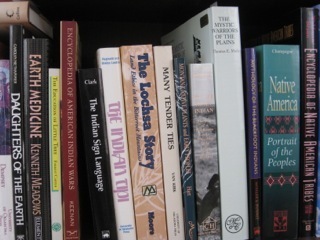 They gave me a short stack of unprocessed yellow paper on which to write my notes and I could only use the pencil they provided. No need for white gloves, though, as the book I wanted to read was in good condition. Sometimes when I travel to the place where my story is set, I’ll take a trip to the library. I let the reference librarian know what subject I’m researching and they retrieve specific books for me. If I run out of time, I will jot down titles and authors of the books I was unable to read/skim and order them later, perhaps from www.powells.com, which specializes in rare and used books. Or I might order them from www.amazon.com or www.barnesandnoble.com
They gave me a short stack of unprocessed yellow paper on which to write my notes and I could only use the pencil they provided. No need for white gloves, though, as the book I wanted to read was in good condition. Sometimes when I travel to the place where my story is set, I’ll take a trip to the library. I let the reference librarian know what subject I’m researching and they retrieve specific books for me. If I run out of time, I will jot down titles and authors of the books I was unable to read/skim and order them later, perhaps from www.powells.com, which specializes in rare and used books. Or I might order them from www.amazon.com or www.barnesandnoble.com
Magazines - Because I have many museum memberships, I have the privilege of receiving their publications via snail mail. Some will yield information for my stories, some will not. All the same, I save these magazines because the information contained within their slick covers is invaluable to me and I never know when a bit of history will pop up.
Books - As a writer, I have a fondness for books. My bookshelves hold an array of books, arranged alphabetically, that I have collected through the years and are mostly about the subjects I’m passionate about– Native Americans especially. I covet my Time/Life Books titled “The Old West” 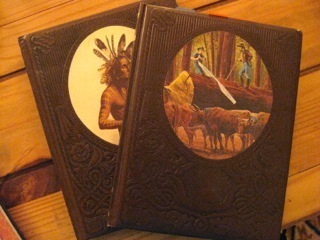 wherein every detail that a historical writer wants/needs to know about the Old West is included in these wonderful books.
wherein every detail that a historical writer wants/needs to know about the Old West is included in these wonderful books.
I have several museum and historical society memberships which afford some excellent research opportunities –
Montana Historical Society - www.montanahistoricalsociety.org – Since I feel a kinship to the history of Montana, I joined the historical society there so I’d be able to keep abreast of all information received either by snail mail or e-mail. Now that most historical societies are preparing their archives for digital research, preliminary searches can be done online before a possible on-site visit to dig through the society’s many collections.
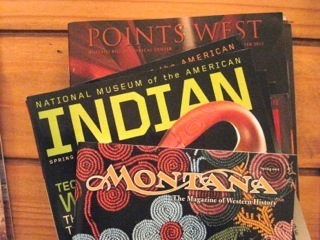 The Northwest Montana Historical Society (Museum at Central School) – www.yourmuseum.org – When I had the opportunity to visit Kalispell, MT to do some research, a friend of mine introduced me to staff members at the Museum at Central School. I gave them a little information about my subject, and they were able to pull folders from their attic archives.I joined the society for two years, and a benefit of that membership allowed a certain amount of research with the knowledgeable staff, one on one, as well as having a set amount of copies made for me. I came home with an abundance of information.
The Northwest Montana Historical Society (Museum at Central School) – www.yourmuseum.org – When I had the opportunity to visit Kalispell, MT to do some research, a friend of mine introduced me to staff members at the Museum at Central School. I gave them a little information about my subject, and they were able to pull folders from their attic archives.I joined the society for two years, and a benefit of that membership allowed a certain amount of research with the knowledgeable staff, one on one, as well as having a set amount of copies made for me. I came home with an abundance of information.
Buffalo Bill Historical Center – www.bbhc.org – I’ve belonged to this icon in Cody, WY for many years. Even though I have yet to discover a special nugget of research there, their publication, Points West, is an invaluable resource for me.
National Museum of the American Indian – www.nmai.si.edu – Because I have an affinity for Native American history, I joined NMAI in Washington, DC,. Their slick publication yields some highly informative articles about different Native American cultures. In addition, my membership dues help maintain the museum and its many exhibits.
I am fortunate to have many resources available to me for my historical researches. I’d like to think that perhaps Mizner wasn’t fully aware that this writer of historical stories who tends to become lost in research would take his “prophetic” words to heart.
*********************************************************************** Alice can be found on LinkedIn — www.linkedin.com/pub/alice-d-trego/1b/3b5/8b3/ — as well as on Facebook https://www.facebook.com/alice.trego Her website, www.alicetrego.com is under construction.





